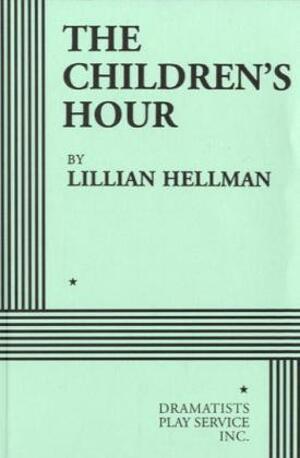Lillian Hellman's "The Children's Hour" is banned in Boston
Calling it "indecent," Mayor Frederick Mansfield banned Lillian Hellman's first play, The Children's Hour, from being staged in Boston, in a decree issued on December 14, 1935. Showcasing the destructive power of lies, the play depicts the experiences of the headmistresses of a girls' boarding school, who are ruined by a malicious rumor that they are lovers.
Although the play was also banned in London, The Children's Hour had opened on Broadway in 1934 to critical and popular success. One reviewer called it both "a venomously tragic play" and "one of the most straightforward, driving dramas of the season." The scandal associated with the play's lesbian theme was reflected in a 1936 film remake, These Three, for which a screenplay written by Hellman transformed the play's rumor of lesbianism into a rumored love triangle centered around a man. Another film version, starring Audrey Hepburn and Shirley MacLaine in 1961, restored both the lesbian-rumor theme and the original title. The play remains a significant milestone in the representation of gay themes in American letters and an important piece of the contemporary American theater repertoire.
Hellman, whom the New York Times has called "one of the most important playwrights of the American theater," was born in New Orleans, Louisiana, on June 20, 1905. Her parents both came from wealthy German-American Jewish families. After her high school graduation and three years at New York University, Hellman took a job reading manuscripts at a Greenwich Village publishing house. After a year, she left to marry writer Arthur Kober and move to Hollywood. Although their marriage ended in 1932, the move proved a good one for Hellman. She worked reading scripts and was soon writing them herself.
Other significant Hellman plays include The Little Foxes (1939), Another Part of the Forest (1947), and The Autumn Garden (1951), all loosely based on her mother's family, and the two anti-fascist plays Watch on the Rhine (1941) and The Searching Wind (1944). Watch on the Rhine and Toys in the Attic (1960) each won a New York Drama Critics Circle Award.
If her later plays were less controversial than The Children's Hour, Hellman's offstage life was even more so. From 1930 to 1961, she lived off and on with writer Dashiell Hammett, with whom she was active in left-wing literary circles. Hellman became known as a pro-Stalinist, and in 1948, she was blacklisted from Hollywood as Senator Joseph McCarthy's anti-Communist witch hunt began. Called to testify before the House Un-American Activities Committee in 1952, she offered to speak about her own activities but refused to name names or speak about the activities of others. In a line perhaps more famous than those from any of her plays, she wrote to the committee that "I cannot and will not cut my conscience to fit this year's fashions." It was considered a brave statement at the time, but Hellman was later criticized for never explicitly condemning Stalinism.
During a decade on the blacklist, Hellman wrote stage adaptations of four plays, including the book for the operetta "Candide," with music by Leonard Bernstein. She wrote no new plays after 1960, but did publish three volumes of memoirs. The first of these, An Unfinished Woman, won the National Book Award for 1969. Hellman died on June 30, 1984.
Sources: Jewish Women in America: An Historical Encyclopedia, pp. 618-620; New York Times, November 21, 1934, December 15, 1935, July 1, 1984.



